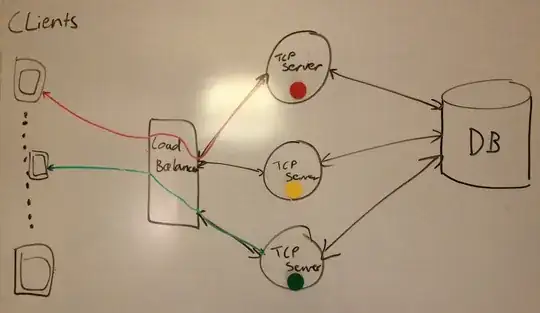I'm developing a real-time mobile app by setting up a TCP connection between the app and server backend. Each user can send messages to all other users.
(I'm making the TCP server in Python with Twisted, am creating my own 'protocol' for communication between the app/backend and hosting it on Amazon Web Services.)
Currently I'm trying to make the backend scalable (and reliable). As far as I can tell, the system could cope with more users by upgrading to a bigger server (which could become rather limiting), or by adding new servers in a cluster configuration - i.e. having several servers sitting behind a load balancer, probably with 1 database they all access.
I have sketched out the rough architecture of this:

However what if the Red user sends a message to all other connected users? Red's server has a TCP connection with Red, but not with Green.
I can think of a one way to deal with this problem:
- Each server could have an open TCP (or SSL) connection with each other server. When one server wants to send a message to all users it simply passes this along it's connection to the other servers. A record could be kept in the database of which servers are online (and their IP address), and one of the servers could be a boss - i.e. decides if others are up and running, if not it could remove them from the database (if a server was up and lost it's connection to the boss it could check the database and see if it had been removed, and restart if it had - else it could assume the boss was down.)
Clearly this needs refinement but shows the general principle.
Alternatively I'm not sure if this is possible (- definitely seems like wishful thinking on my part):
- Perhaps users could just connect to a box or router, and all servers could message all users through it?
If you know how to cluster TCP servers effectively, or a design pattern that provides a solution, or have any comments at all, then I would be very grateful. Thank you :-)